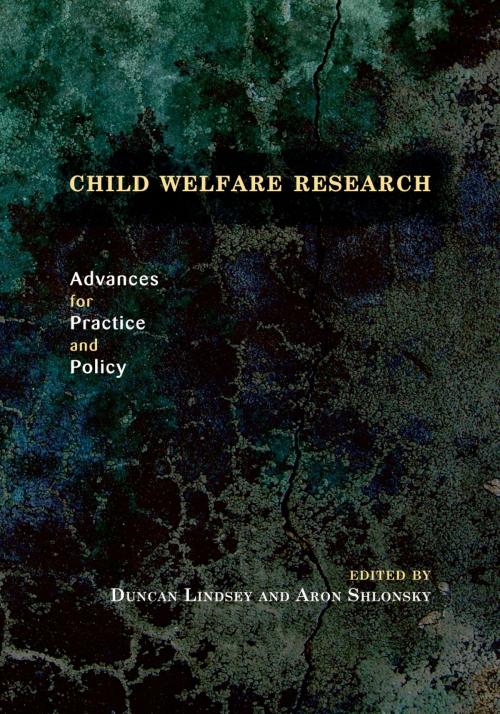Child Welfare Research
Advances for Practice and Policy
Nonfiction, Social & Cultural Studies, Political Science, Politics, Social Services & Welfare, Social Science, Social Work| Author: | Aron Shlonsky | ISBN: | 9780190294007 |
| Publisher: | Oxford University Press | Publication: | April 25, 2008 |
| Imprint: | Oxford University Press | Language: | English |
| Author: | Aron Shlonsky |
| ISBN: | 9780190294007 |
| Publisher: | Oxford University Press |
| Publication: | April 25, 2008 |
| Imprint: | Oxford University Press |
| Language: | English |
Research has already been a significant factor in child welfare policy in recent years, but this essential new volume demonstrates that it has taken a leading role in the field to spur and guide change. In the incisive chapters gathered here, some of the field's top investigators present their work and assess its effect on the full spectrum of child welfare services. Future generations of researchers, as well as students, practitioners, and service providers, will find the resulting text indispensable. Edited by Duncan Lindsey and Aron Shlonsky, two of the discipline's most articulate voices, the book covers every base. The opening chapters situate child welfare research in the modern context; they are followed by discussions of evidence-based practice in the field, arguably its most pressing concern now. Recent years have seen historic rises in the number of children adopted through public agencies and, accordingly, permanent placement and family ties are critical topics that occupy the book's core, along with chapters broaching the thorny questions that surround decision-making and risk assessment. The urgent need for a more effective use of research and evidence is highlighted again with looks at the future of child protection and how concrete data can influence policy and help children. Finally, in recognition of the growing importance of a global view, closing chapters address international issues in child welfare research, including an examination of policies from abroad and a multinational comparison of the economic challenges facing single mothers and their children. With its insightful treatment of child welfare services in terms of the broader welfare system and acknowledgment of the myriad problems child welfare agencies face, this exceptional compendium offers a rich understanding of the social conditions that influence contemporary child welfare and enables the field to move ahead without losing sight of valuable lessons that have been learned.
Research has already been a significant factor in child welfare policy in recent years, but this essential new volume demonstrates that it has taken a leading role in the field to spur and guide change. In the incisive chapters gathered here, some of the field's top investigators present their work and assess its effect on the full spectrum of child welfare services. Future generations of researchers, as well as students, practitioners, and service providers, will find the resulting text indispensable. Edited by Duncan Lindsey and Aron Shlonsky, two of the discipline's most articulate voices, the book covers every base. The opening chapters situate child welfare research in the modern context; they are followed by discussions of evidence-based practice in the field, arguably its most pressing concern now. Recent years have seen historic rises in the number of children adopted through public agencies and, accordingly, permanent placement and family ties are critical topics that occupy the book's core, along with chapters broaching the thorny questions that surround decision-making and risk assessment. The urgent need for a more effective use of research and evidence is highlighted again with looks at the future of child protection and how concrete data can influence policy and help children. Finally, in recognition of the growing importance of a global view, closing chapters address international issues in child welfare research, including an examination of policies from abroad and a multinational comparison of the economic challenges facing single mothers and their children. With its insightful treatment of child welfare services in terms of the broader welfare system and acknowledgment of the myriad problems child welfare agencies face, this exceptional compendium offers a rich understanding of the social conditions that influence contemporary child welfare and enables the field to move ahead without losing sight of valuable lessons that have been learned.















